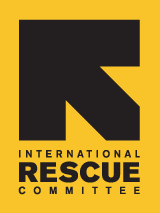The International Rescue Committee (IRC) convened a pivotal regional roundtable in Nairobi recently, bringing together top executives from the organization and six distinguished civil society leaders representing Central African countries. This critical gathering served as a prelude to the forthcoming release of Watchlist 2024; the IRC’s annual report highlighting 20 countries worldwide at high risk of political, security, and environmental disruptions in the coming year.
Under the framework of Chatham House Rules, the discussion at the roundtable encompassed four key focal points. The participants engaged in a comprehensive exploration of the concept of “forgotten conflicts” commonly associated with Central Africa. Additionally, participants delved into three thematic debates addressing the dynamics of conflicts in the region, the socio-economic landscape, and the profound impact of climate change on existing vulnerabilities.
Francis Sala Diakanda, Deputy Regional Director for IRC Central Africa said,
“Throughout these deliberations, the roundtable discussions shed light on emerging threats throughout Central Africa, underscoring the urgency to overhaul humanitarian policies. As Central African nations grapple with an escalating number of conflicts and political upheaval, there is a compelling need for a community-based approach that actively engages local populations in both the design and execution of solutions and policies.
“Moreover, recognizing the transnational nature of these threats, all stakeholders must break down silos and enhance cross-border coordination. Climate change, in particular, amplifies the urgency of collaborative efforts, exerting pressure on food security, healthcare systems, and community livelihoods, thereby increasing the risk of epidemics. While certain countries in the region have been extensively covered in past Watchlist reports, the situation in Cameroon and Chad demands heightened attention from policymakers:
“Cameroon continues to grapple with a persistent armed conflict in its North-West and South-West regions (commonly referred to as “NW-SW”), resulting in sustained humanitarian needs. Furthermore, the nation’s political stability is unclear due to upcoming presidential elections in 2025 and larger socio-economic threats such as rising inflation.”
“Chad, surrounded by neighboring countries confronting grave political and security crises (Libya, Sudan, Central African Republic, Niger, northern Nigeria, and Cameroon), finds itself in a precarious situation. With delayed elections looming, the situation in Chad warrants close monitoring.”
Paul Crescent Beninga, spokesperson for Groupe de Travail de la Société Civile in Central African Republic said,
“This is a commendable initiative. Very often some organizations design projects that do not take into account some social and anthropological realities in our societies. I invite other organizations to join such an initiative”
The Nairobi roundtable proved to be an invaluable platform for assessing and addressing these pressing concerns in Central Africa. IRC remains committed to collaborating with civil society leaders, governments, and international partners to forge effective, sustainable solutions that promote stability, security, and resilience across the region. The forthcoming Watchlist 2024, set to be released in December of this year, will set out IRC recommendations for addressing crises in this region and across the globe that are most at risk of deterioration in the coming year.
Distributed by APO Group on behalf of International Rescue Committee (IRC) .
